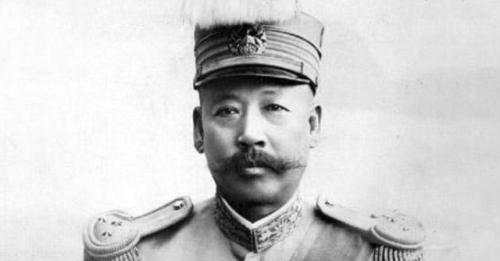As a special group in the history of the Republic of China, the Beiyang warlords have different evaluations of them in history, and different warlords have left a good or bad reputation in history because of their unique way of doing things. For example, the warlord we want to talk about today, he had a bad track record in the first half of his life, relying on bribery to become the president of the Republic of China, thus carrying the infamy of the world. However, the second half of his life was admirable, and in the face of the threat and temptation of the Japanese Kou, he preferred to drink porridge rather than betray the country, and was posthumously promoted to the rank of general.

He was Cao Kun, the leader of the warlords directly under the Republic of China, who was born in a poor family in Tianjin and made a living by selling cloth on the street. One day, Cao Kun sold cloth to Baoding City, and when he entered the city, he was insulted and ridiculed by the soldiers guarding the city, and since then Cao Kun has made up his mind to obey Rong. In 1894, Cao Kun rushed to Tianjin Xiaozhan to join Yuan Shikai, although Cao Kun had no background, but he was hard-working and soon became Yuan Shikai's confidant and was reused.
After Yuan Shikai's death, Cao Kun was involved in the Zhiwan clan, and after Feng Guozhang's death, he became the leader of the warlords of the zhizhi lineage. As a warlord, the most controversial event in Cao Kun's life was the bribery of the presidential election in 1922.
After the end of the First Zhifeng War, Cao Kun successfully took control of Beijing, forced President Xu Shichang to resign, and supported the reinstatement of former President Li Yuanhong. In 1923, Cao Kun forced Li Yuanhong to leave, spent a lot of money to bribe and threaten members of parliament, and was successfully elected president of the Republic of China. After the news spread, the world ridiculed Cao Kun as a "pig boy unification" and a "bribery of the president".
Cao Kun had a bad record in the first half of his life, but in the face of the Japanese invasion, he always insisted on his duty as a soldier. In 1927, at the age of 65, Cao Kun returned to Tianjin and lived with his wife on Route 19 in the British Concession, preparing to spend his old age. In 1931, the Japanese Kou set up the "Jicha Administrative Affairs Committee" in an attempt to organize autonomy for the five provinces of North China, in order to support an agent. Rikou found Cao Kun and wanted to invite him out of the mountains to preside over the overall situation, Cao Kun was afraid of offending the Japanese and wanted to open the door, his wife did not allow it, and stood at the door and scolded the Japanese, the Japanese left Cao Kun's house in disgust.
Afterwards, Liu Shi detailed to Cao Kun the crimes committed by Rikou in the northeast and said to Cao Kun: "Even if we drink porridge, we can't go to do things for the Japanese", Cao Kun promised his wife, and at the same time warned his children. The Japanese were not dead-hearted, and repeatedly sought cao kun to threaten and induce him, but cao kun refused. Cao Kun died of illness in 1938, and after his death, the Nationalist government posthumously awarded him the rank of general of the army.
After Cao Kun's life was bumpy after the Japanese invasion, the warlords who had been directly related to the Japanese had turned to the Japanese to hold important positions, and even in this case, Cao Kun was still unmoved, and this feeling of home and country was admirable.